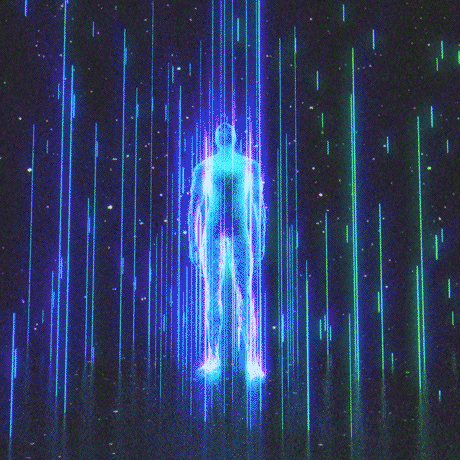If this passes, piracy websites can rebrand as AI training material websites and we can all run a crappy model locally to train on pirated material.
That would work if you were rich and friends with government officials. I don’t like your chances otherwise.
You are a glass half full sort of person!
Another win for piracy community
Fuck it. I’m training my home AI will the world’s TV, Movies and Books.
Piracy is not theft.
When a corporation does it to get a competitive edge, it is.
It’s only theft if they support laws preventing their competitors from doing it too. Which is kind of what OpenAI did, and now they’re walking that idea back because they’re losing again.
No it’s not.
It’s can be problematic behaviour, you can make it illegal if you want, but at a fundamental level, making a copy of something is not the same thing as stealing something.
Only if it’s illegal to begin with. We need to abolish copyright, as with the internet and digital media in general, the concept has become outdated as scarcity isn’t really a thing anymore. This also applies to anything that can be digitized.
The original creator can still sell their work and people can still choose to buy it, and people will if it is convenient enough. If it is inconvenient or too expensive, people will pirate it instead, regardless of the law.
What OpenAI is doing is not piracy.
Piracy is only theft if AI can’t be made profitable.
Yeah but I don’t sell ripped dvds and copies of other peoples art.
What if I run a filter over it. Transformative works are fine.
Oh it’s “over”? Fine for me
Ho no, what will we do without degenerate generative AIs?!
Okay, I can work with this. Hey Altman you can train on anything that’s public domain, now go take those fuck ton of billions and fight the copyright laws to make public domain make sense again.
counterpoint: what if we just make an exception for tech companies and double fuck consumers?
Counter counterpoint: I don’t know, I think making an exception for tech companies probably gives a minor advantage to consumers at least.
You can still go to copilot and ask it for some pretty fucking off the wall python and bash, it’ll save you a good 20 minutes of writing something and it’ll already be documented and generally best practice.
Sure the tech companies are the one walking away with billions of dollars and it presumably hurts the content creators and copyright holders.
The problem is, feeding AI is not significantly different than feeding Google back in the day. You remember back when you could see cached versions of web pages. And hell their book scanning initiative to this day is super fucking useful.
If you look at how we teach and train artists. And then how those artists do their work. All digital art and most painting these days has reference art all over the place. AI is taking random noise and slowly making things look more like the reference art that’s not wholly different than what people are doing.
We’re training AI on every book that people can get their hands on, But that’s how we train people too.
I say that training an AI is not that different than training people, and the entire content of all the copyright they look at in their lives doesn’t get a chunk of the money when they write a book or paint something that looks like the style of Van Gogh. They’re even allowed to generate content for private companies or for sale.
What is different, is that the AI is very good at this and has machine levels of retention and abilities. And companies are poised to get rich off of the computational work. So I’m actually perfectly down with AI’s being trained on copyrighted materials as long as they can’t recite it directly and in whole, But I feel the models that are created using these techniques should also be in the public domain.
giving an exception to tech companies gives an advantage to consumers
No. shut the fuck up. these companies are anti human and only exist to threaten labor and run out the clock on climate change so we all die without a revolution and the billionaires flee to the bunkers they’re convinced will save them (they won’t, closed systems are doomed). it’s an existential threat. this is so obvious, I’m agreeing with fucking yudkowsky, of all fucking people-he is correct, if for entirely wrong nonsense reasons.
good for writing code
so, I have tried to use it for that. nothing I have ever asked it for was remotely fit for purpose, often referring to things like libraries that straight up do not exist. it might be fine if it can quote a long thing from stack exchange from a program anyone who’s been coding for a decade has ten versions of laying around in their home folder, but if you want a piece of code that does something particular, it’s worse than useless. not even as a guide.
AI
HOLY SHIT WE HAVE AI NOW!? WHEN DID THIS HAPPEN!? can I talk to it? or do you just mean large language models?
there’s some benefit in these things regurgitating art
tell me you don’t understand a single thing about how these models work, and don’t understand a single thing about the value meaning or utility of art, without saying “I don’t understand a single thing about how these models work, and don’t understand a single thing about the value meaning or utility of art.”.
This is the correct answer. Never forget that US copyright law originally allowed for a 14 year (renewable for 14 more years) term. Now copyright holders are able to:
- reach consumers more quickly and easily using the internet
- market on more fronts (merch didn’t exist in 1710)
- form other business types to better hold/manage IP
So much in the modern world exists to enable copyright holders, but terms are longer than ever. It’s insane.
Fuck Sam Altmann, the fartsniffer who convinced himself & a few other dumb people that his company really has the leverage to make such demands.
“Oh, but democracy!” - saying that in the US of 2025 is a whole 'nother kind of dumb.
Anyhow, you don’t give a single fuck about democracy, you’re just scared because a chinese company offers what you offer for a fraction of the price/resources.Your scared for your government money and basically begging for one more handout “to save democracy”.
Yes, I’ve been listening to Ed Zitron.
gosh Ed Zitron is such an anodyne voice to hear, I felt like I was losing my mind until I listened to some of his stuff
Yeah, he has the ability to articulate what I was already thinking about LLMs and bring in hard data to back up his thesis that it’s all bullshit. Dangerous and expensive bullshit, but bullshit nonetheless.
It’s really sad that his willingness to say the tech industry is full of shit is such an unusual attribute in the tech journalism world.
It’s really sad that his willingness to say the tech industry is full of shit is such an unusual attribute in the tech journalism world.
What is interesting is if he didn’t pretty regularly say in so many words " why the fuck AM I the guy who is sounding the alarm here?? " I would be much more skeptical of his points. He isn’t someone that is directly aligned with the industry, at least not in an “authoritative expert capable of doing a thorough takedown of a bubble/hype mirage” sense that you would expect someone sounding the alarm on a bubble to be. I mean I can tell the guy likes the attention (not in a bad sense really), but he seems utterly genuine in the attitude of " wtf, well ok I will do it… but like seriously I AM the guy who is sounding the alarm here? This isn’t honestly my direct area of expertise? I will provide you a thorough explantion with proof… but my argument really isn’t complicated, it is just ‘business doesn’t make money why will no one acknowledge that’ and it breaks my brain that people that are experts in directly adjacent/relevant things can’t see this…? am I high? "
… cus yeah Ed Zitron, that is how a lot of us fucking feel right now.
(these aren’t direct quotes, I was summarizing, go watch/listen to some of Ed Zitron’s stuff, none of his arguments hinge on anything unreasonable or especially complicated, which is the worrying part…)
Fartsniffer 🤣
It seems like their message was written specifically for the biases the current administration holds. Calling China PRC is an obvious example. So it was written by idiots for idiots apparently.
But when China steals all their (arguably not copywrite-able) work…
Sam Altman hasn’t complained surprisingly, he just said there’s competition and it will be harder for OpenAI to compete with open source. I think their small lead is essentially gone, and their plan is now to suckle Microsoft’s teet.
it will be harder for OpenAI to compete with open source
Can we revoke the word open from their name? Please?
If It Can’t Steal All Your Copyrighted Work
https://commons.wikimedia.org/wiki/File:Copying_Is_Not_Theft.webm
Of course it is if you copy to monetise which is what they do.
They monetize it, erase authorship and bastardize the work.
Like if copyright was to protect against anything, it would be this.
Getting really tired of these fucking CEOs calling their failing businesses “threats to national security” so big daddy government will come and float them again. Doubly ironic its coming from a company whos actually destroying the fucking planet while it achieves fuck-all.
Oh no…
Anyway…What I’m hearing between the lines here is the origin of a legal “argument.”
If a person’s mind is allowed to read copyrighted works, remember them, be inspired by them, and describe them to others, then surely a different type of “person’s” different type of “mind” must be allowed to do the same thing!
After all, corporations are people, right? Especially any worth trillions of dollars! They are more worthy as people than meatbags worth mere billions!
This has been the legal basis of all AI training sets since they began collecting datasets. The US copyright office heard these arguments in 2023: https://www.copyright.gov/ai/listening-sessions.html
MR. LEVEY: Hi there. I’m Curt Levey, President of the Committee for Justice. We’re a nonprofit that focuses on a variety of legal and policy issues, including intellectual property, AI, tech policy. There certainly are a number of very interesting questions about AI and copyright. I’d like to focus on one of them, which is the intersection of AI and copyright infringement, which some of the other panelists have already alluded to.
That issue is at the forefront given recent high-profile lawsuits claiming that generative AI, such as DALL-E 2 or Stable Diffusion, are infringing by training their AI models on a set of copyrighted images, such as those owned by Getty Images, one of the plaintiffs in these suits. And I must admit there’s some tension in what I think about the issue at the heart of these lawsuits. I and the Committee for Justice favor strong protection for creatives because that’s the best way to encourage creativity and innovation.
But, at the same time, I was an AI scientist long ago in the 1990s before I was an attorney, and I have a lot of experience in how AI, that is, the neural networks at the heart of AI, learn from very large numbers of examples, and at a deep level, it’s analogous to how human creators learn from a lifetime of examples. And we don’t call that infringement when a human does it, so it’s hard for me to conclude that it’s infringement when done by AI.
Now some might say, why should we analogize to humans? And I would say, for one, we should be intellectually consistent about how we analyze copyright. And number two, I think it’s better to borrow from precedents we know that assumed human authorship than to invent the wheel over again for AI. And, look, neither human nor machine learning depends on retaining specific examples that they learn from.
So the lawsuits that I’m alluding to argue that infringement springs from temporary copies made during learning. And I think my number one takeaway would be, like it or not, a distinction between man and machine based on temporary storage will ultimately fail maybe not now but in the near future. Not only are there relatively weak legal arguments in terms of temporary copies, the precedent on that, more importantly, temporary storage of training examples is the easiest way to train an AI model, but it’s not fundamentally required and it’s not fundamentally different from what humans do, and I’ll get into that more later if time permits.
The “temporary storage” idea is pretty central for visual models like Midjourney or DALL-E, whose training sets are full of copyrighted works lol. There is a legal basis for temporary storage too:
The “Ephemeral Copy” Exception (17 U.S.C. § 112 & § 117)
U.S. copyright law recognizes temporary, incidental, and transitory copies as necessary for technological processes. Section 117 allows temporary copies for software operation. Section 112 permits temporary copies for broadcasting and streaming.BTW, if anyone was interested - many visual models use the same training set, collected by a German non-profit: https://laion.ai/
It’s “technically not copyright infringement” because the set is just a link to an image, paired with a text description of each image. Because they’re just pointing to the image, they don’t really have to respect any copyright.
Based on this, can I use chat gpt to recreate a Coca Cola recipe
Copyright law doesn’t cover recipes - it’s just a “trade secret”. But the approximate recipe for coca cola is well known and can be googled.
Sam Altman is a lying hype-man. He deserves to see his company fail.
Obligatory: I’m anti-AI, mostly anti-technology
That said, I can’t say that I mind LLMs using copyrighted materials that it accesses legally/appropriately (lots of copyrighted content may be freely available to some extent, like news articles or song lyrics)
I’m open to arguments correcting me. I’d prefer to have another reason to be against this technology, not arguing on the side of frauds like Sam Altman. Here’s my take:
All content created by humans follows consumption of other content. If I read lots of Vonnegut, I should be able to churn out prose that roughly (or precisely) includes his idiosyncrasies as a writer. We read more than one author; we read dozens or hundreds over our lifetimes. Likewise musicians, film directors, etc etc.
If an LLM consumes the same copyrighted content and learns how to copy its various characteristics, how is it meaningfully different from me doing it and becoming a successful writer?
Yup. Violating IP licenses is a great reason to prevent it. According to current law, if they get Alice license for the book they should be able to use it how they want.
I’m not permitted to pirate a book just because I only intend to read it and then give it back. AI shouldn’t be able to either if people can’t.Beyond that, we need to accept that might need to come up with new rules for new technology. There’s a lot of people, notably artists, who object to art they put on their website being used for training. Under current law if you make it publicly available, people can download it and use it on their computer as long as they don’t distribute it. That current law allows something we don’t want doesn’t mean we need to find a way to interpret current law as not allowing it, it just means we need new laws that say “fair use for people is not the same as fair use for AI training”.
Right. The problem is not the fact it consumes the information, the problem is if the user uses it to violate copyright. It’s just a tool after all.
Like, I’m capable of violating copyright in infinitely many ways, but I usually don’t.
The problem is that the user usually can’t tell if the AI output is infringing someone’s copyright or not unless they’ve seen all the training data.
If an LLM consumes the same copyrighted content and learns how to copy its various characteristics, how is it meaningfully different from me doing it and becoming a successful writer?
That is the trillion-dollar question, isn’t it?
I’ve got two thoughts to frame the question, but I won’t give an answer.
- Laws are just social constructs, to help people get along with each other. They’re not supposed to be grand universal moral frameworks, or coherent/consistent philosophies. They’re always full of contradictions. So… does it even matter if it’s “meaningfully” different or not, if it’s socially useful to treat it as different (or not)?
- We’ve seen with digital locks, gig work, algorithmic market manipulation, and playing either side of Section 230 when convenient… that the ethos of big tech is pretty much “define what’s illegal, so I can colonize the precise border of illegality, to a fractal level of granularity”. I’m not super stoked to come with an objective quantitative framework for them to follow, cuz I know they’ll just flow around it like water and continue to find ways to do antisocial shit in ways that technically follow the rules.
and learns how to copy its various characteristics
Because you are a human. Not an immortal corporation.
I am tired of people trying to have iNtElLeCtUaL dIsCuSsIoN about/with entities that would feed you feet first into a wood chipper if it thought it could profit from it.
Except the reason Altman is so upset has nothing to do with this very valid discussion.
As I commented elsewhere:
Fuck Sam Altmann, the fartsniffer who convinced himself & a few other dumb people that his company really has the leverage to make such demands.
He doesn’t care about democracy, he’s just scared because a chinese company offers what his company offers, but for a fraction of the price/resources.
He’s scared for his government money and basically begging for one more handout “to save democracy”.
Yes, I’ve been listening to Ed Zitron.
In your example, you could also be sued for ripping off his style.
You can sue for anything in the USA. But it is pretty much impossible to successfully sue for “ripping off someone’s style”. Where do you even begin to define a writing style?
“style”, in terms of composition, is actually a component in proving plagiarism.
There are lots of ways to characterize writing style. Go read Finnegans Wake and tell me James Joyce doesn’t have a characteristic style.
Edited for clarity: If that were the case then Weird AL would be screwed.
Original: In that case Weird AL would be screwed
No because what he does is already a settled part of the law.
That’s the point. It’s established law so OP wouldn’t be sued

Too bad, so sad
Good, go away.











